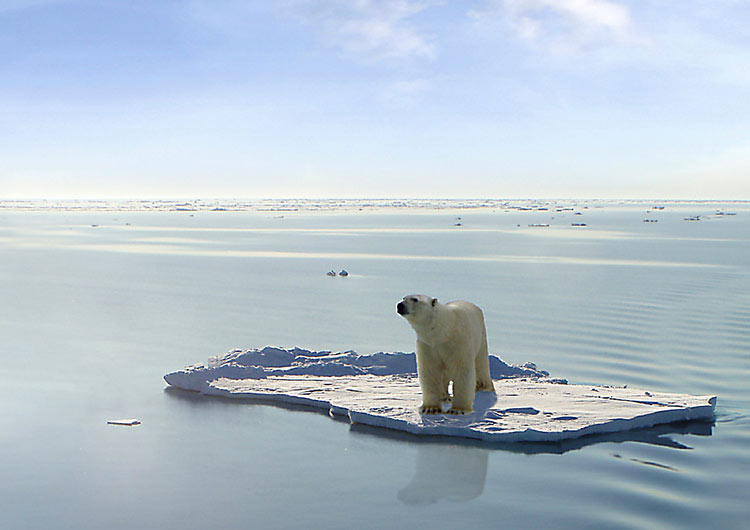
Images like this one have come to represent the consequences of climate change. The polar bear has become a symbol of the difficulties facing many wildlife species as their habitat continues to change at such a rate that they are often unable to adapt. In the polar bear’s case, as sea ice disappears, they are increasingly facing difficulties finding food. Last week, we were reminded again of what this can mean for human communities as well.
While leaving a Halloween party, three people in the town of Churchill, Manitoba, on Hudson Bay were attacked by a polar bear. Two escaped unharmed, but the third was injured, as was a neighbor who came to their aid. The bear was later shot, as was another bear as a result of the incident — a mother with a cub. The cub was taken to a zoo.
Steven Amstrup, chief scientist at Polar Bears International, told the Guardian that, “We have predicted in no uncertain that as bears become hungrier as the sea ice absence period is longer, more and more of these animals are going to be venturing into communities, venturing into villages, raiding food caches, getting into garbage, and even attacking people. So we predict these kinds of events are going to be more frequent and more severe because of climate change.”

I’m reminded once again that polar bears are not the only bears whose encounters with humans — dangerous to both human and bear — are on a track to increase due to climate change. As climate change has led to a population boom of mountain pine beetles in the North American West, grizzly bears have been facing a shortage of one of their favorite foods. As the beetles attack whitebark pine, the nutritious whitebark pine seeds are getting harder and harder to come by. Like polar bears, grizzlies are increasingly forced to venture toward towns and camps in search of food, increasing the potential for dangerous conflicts with humans.
Yellowstone National Park spokesperson Al Nash told Reuters in September, “We are expecting an increase in human-bear encounters and we are reinforcing safety messages.”
At American Forests, we started our Endangered Western Forests initiative to protect and restore the whitebark pine for the entire ecosystem that depends on it — including the grizzly bears. Please help us protect an important food source for these creatures. Many species, including humans, are already feeling the consequences of their loss.